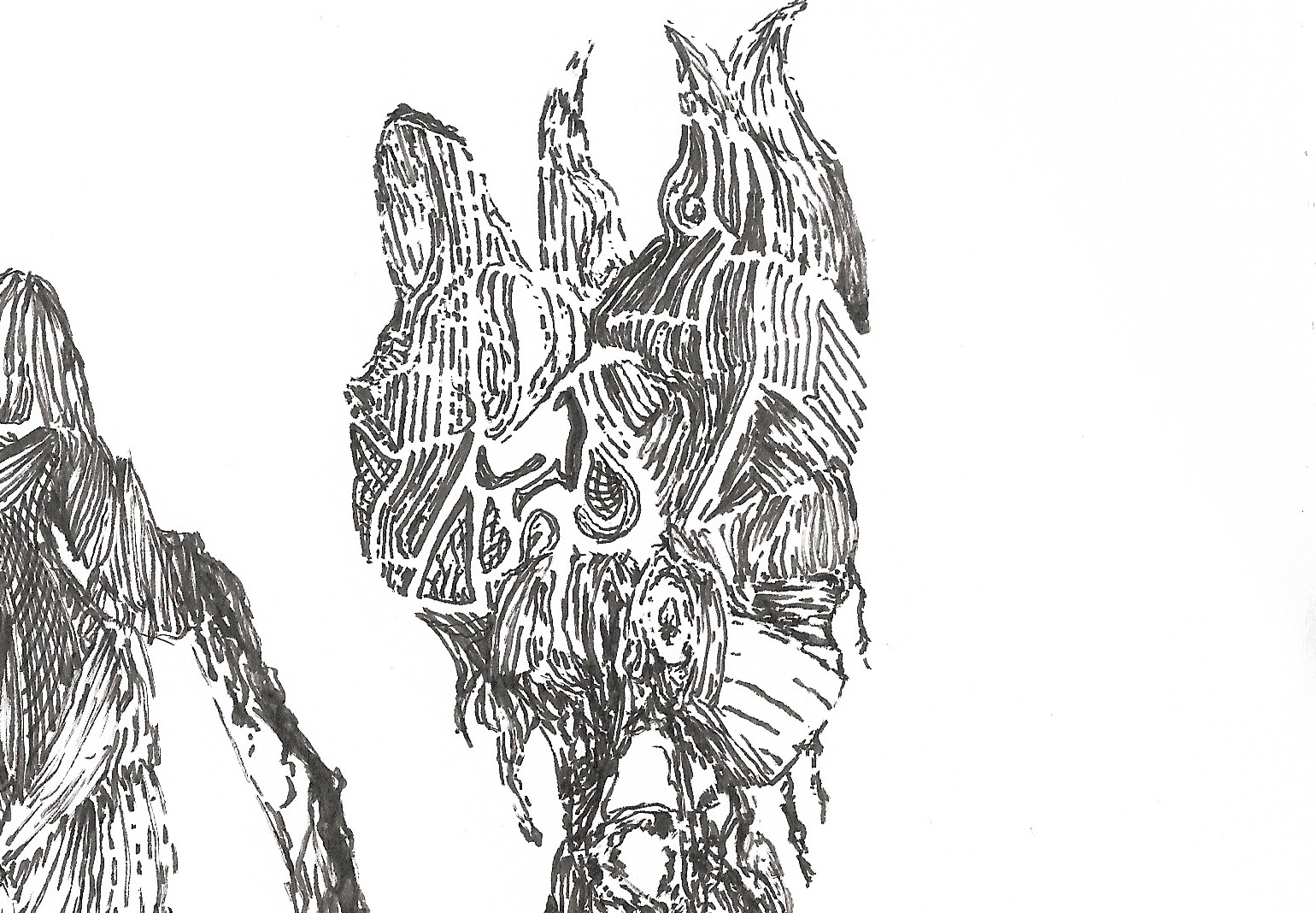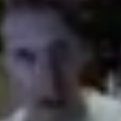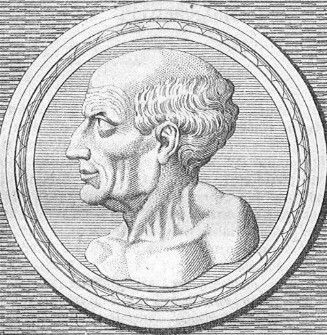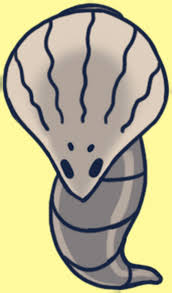From where I’m sitting, it looks like death should not be the end in that case.
You can’t perceive the passage of time when you are dead, so you’re just going to experience dying and then immediate rebirth after the countless eons pass for that rare moment where entropy spontaneously reverses to form your mind again.
i think these questions are really uninteresting if you’re gonna insist on being purely rational materialist about it, but i think it gets more interesting when you’re willing to play with what reality might be a little more. There are religious motifs that repeat in many cultures about the eternal reocurrence. This idea that earth is made and destroyed in countless infinite, repeating cycles.
What if you and I have been going at this for a while?
But if you want the answers science can give right now, probably not
What if you and I have been going at this for a while?
Well if none of your memories carry over it’s certainly not you anymore.
You don’t lose memories as you live this life? Is someone with dementia or amnesia a different person than they were before? Memories cannot be the basis of self, they are not permenant, and are not always referenced, and each new reference creates a new slightly altered version. There is nothing that can be truly called a self in the colloquial sense, just a vague collection of things artificially stabilized. From this basis it is fair to imagine you could experience another life with the same consciousness without many remnants from the past lives.
I’m getting a fresh new consciousness every time I’m waking up.
The same consciousness that wrote the comment you’re responding to is no longer existent.
Just consciousnesses existing in the moment.
Do you think so? I think what we are internally isn’t fully dependent on memory and reference, there is some element of us that just is, for at least as long as we’re alive. Behind your eyes and resting within your interior is a spark of something that has existed continuously since you were born, that little “I” of awareness may never change.
It’s always you imo. You can go through mk ultra style brainwashing, lose your sense of identity, find yourself under a new name and with new interests, but between who you were and who you are, are enough commonalities that I would dispute the notion we’re just electrical signals in wet gooey meat endlessly referencing the past to navigate the present and anticipate the future - but that’s me.
I mean what you’re describing is an innate soul that cannot be experimentally observed, similar to cissexist metaphysical sex but for broader identity. It’s an inferior concept of the self than one based off memories, language use, behavior/activity, and ego-image. I suppose even total amnesia can leave behind subconscious behaviors from prior, but this is “memory and reference,” so…
If you’re talking about the “I” of continuous stream of consciousness, this can be hijacked by multiple entities and even cut off entirely through dissociative barriers. And arguably it’s not of the same quality at a young age anyway.
And you’ve done it. Independently arrived at the truth of no-self. You don’t have to agree, but if the truly discontinuous that is reality can appear continuous, perhaps this consciousness could appear continuous with another life (I am in no way denying the laws of cause and effect).
Infinity =/= everything
Even if the universe has an infinite lifespan (unknown) that does not in any way imply any possible outcome will occur. So there is absolutely no reason to expect a body like yours will be recreated. Even if it was, it still wouldn’t be you it would be your clone.
Poincare recurrence is, as far as we understand the laws of the universe, totally possible. If you think of the set of possible states of the universe, the current state it’s in is necessarily in that set. Then, because it’s a closed system, it necessarily has to come back to that state eventually. The hard part to grasp of how that’s physically possible is that, of course, classical thermodynamics tells us that there’s an arrow of time that points in the direction of increasing entropy. But looking at statistical thermodynamics, it turns out that it’s only the case that it’s overwhelmingly more likely that a system, in the macro scale, goes in the direction of increasing entropy. A system spontaneously becoming more ordered is possible, just so very unlikely that it will take a completely unimaginable amount of time to happen. Heat death could reverse itself and little by little build up into a new big bang after silly amounts of time. Like, Tree(Graham’s Number) silly.
With scientific premises isn’t it more likely an identical “you” lives the exact same life that you did independently, rather than your consciousness picking up where you left off? Maybe Nietzsche was right, lol.
I didn’t really get to the topic of consciousness. IMO if poincare recurrence happened, there’s no reason to think that the new ‘you’ would continue your consciousness, it would just be a different person who lives the same life. But we don’t know how consciousness works.
I didn’t say it wasn’t possible
Why doesn’t it imply that? We can put a number on the chance that particles randomly come together to reform minds. That number is arbitrarily small, but it’s not zero, hence why we are considering arbitrarily large time scales.
The set of natural numbers (1, 2, 3, …) is an infinite set, but its infinite nature does not imply that it contains every number (for example, 0.5 is not in the set). Being infinite and being all-encompassing are two different concepts.
It’s very possible that the universe will have an infinite lifespan but will never accumulate matter after heat death, they will just continue to spread apart at a rate greater than gravity can gather them.
Right, but we aren’t talking about the set of natural numbers, we’re talking about the set of ways matter can be distributed in the universe. I know a living me is a possible state in this universe because I exist, so if I can spotaneously form once, why can’t I spontaneously form again?
I didn’t say it couldn’t happen, I said a universe in existence for an infinite amount of time does not imply that it would.
But again, like I said earlier even if molecules spontaneously arranged themselves such that a replica of your body is created it still isn’t you. It would best be described as a clone of you.
I was thinking that maybe if it’s similar enough to my brain, it should just pick up my consciousness from whereever the fundamental of consciousness is stored. Like what happened the first time, right?
That’s assuming consciousness is fundamental to the universe and not some emergent thing, I guess.
I know there’s an acceptable margin of error here because I can place drugs, foreign objects, inside my head to radically alter the functioning of my brain without losing consciousness or irreparably damaging it.
IDK comrade tbh you kind of stopped making sense to me here. If you think consciousness is some mystical thing that transcends time, space and matter then you don’t need probability and thermodynamics to believe you’ll live again just embrace the mysticism if it gives you peace.
I don’t know what consciousness is, but I can be sure mine exists, and yours too probably.
But it seems pretty inherently mystical to me considering we can’t even scratch the surface of researching the how and why we have qualia and subjective experience seemingly disconnected from material reality.
Idk, I took an edible and wanted to poke Hexbear with the idea, it’s a fun time!
What is this “rebirth”? There’ll be many births, perhaps many similar to previous ones, but what makes “re”? Right now, everyday on earth (perhaps on other worlds) there are many births of people who are quite similar to you already, why do they constitute any less a rebirth than someone a thousand billion years from now?
My lot isn’t with “me” and me being eternal or me reborn. I’m part of the totality.
I don’t think given an infinite amount of time the universe would produce an identical me. That’s such a specific combination of matter and chemical processes it just feels silly to assume it would happen. Even if I agreed that it would inevitably happen, I think there’s an implication that a very large number of almost but not quite mes would also come into existence (because if I understand the premise, it’s basically “on a long enough timescale every possible thing will happen”) and frankly that’s more disturbing than ceasing to exist (which, to be clear, is very disturbing to me).
I’ll also say that a clone of me with my memories is still not me. Such a thing could exist simultaneously with me and it wouldn’t reduce my desire to personally remain alive even slightly, it’s a different guy, but with a lot in common with me.
if you can prove that entropy will reverse please go collect your nobels and so on. i’ll watch angela collier’s video on it.
Entropy “reverses” itself literally all the time in micro scales. All entropy means is that the likely states of a system are more likely to occur (when I phrase it that way it sounds redundant to the point of absurdity, but that actually is what it means). If you look at the interface between two identical metal lattices that can exchange electrons, the most likely state is the one where the number of electrons remains the same at both sides of the interface. But at any given time, it’s possible for an imbalance to come about and for there to be a few more electrons in one side of the interface. Larger imbalances are less likely, of course, but it would even be possible for all the electrons to move to one side; there’s no physical law that says that the system has to keep evolving to become more and more disordered, it’s just the most likely thing to occur. For all practical considerations in timespans measured in googol years or less, it’s not worth considering this for macro scale systems. But if you want to entertain the notion that time goes on infinitely, googol is a laughably small number.
If you like acollieastro’s stuff I think Alpha Phoenix explains the quirks of entropy in a similar way here that you might find to be a better explanation than my comment.
I found a YouTube link in your comment. Here are links to the same video on alternative frontends that protect your privacy:
Isn’t entropy a statistical proccess? Given arbitrarily large time scales, a disordered system can briefly become ordered.
Can mixed ingredients become unmixed by mixing more?
Can they? Sure. If a system is wandering ergodically through its state space, there’s no reason it can’t find its way back to “special” low volume states. Will they find their way there? Almost certainly not in anything like a reasonable amount of time. Infinite time is not a reasonable amount of time though.
With enough time and mixing, I’m sure!
Somewhere between now and the end of time my pants will be shid
put me down for $5 on later today
deleted by creator
Real question is if a Boltzmann brain can really even exist or if it’s just an antiquated mechanical materialist view on consciousness inconsistent with dialectical materialism.
I wasn’t even thinking about the Boltzmann brain scenario, I was just considering the chance that literally everything could reform like this as we take time out to infinity, all slightly different permutations too
There’s no physical reason why they can’t, but there are good reasons to think that the punchline of the original thought experiment–that they are overwhelmingly more likely than “regular” brains–isn’t right.
i feel like whats missing in this discussion is the effect of quantum mechanics on consciousness. there is some research that shows that randomness introduced by quantum particles can affect synapses, and theoretically consciousness. and I think that even on infinite scales you can’t really get the same exact quantum patterns, they will never repeat, or else it wouldn’t really be random.
Random things repeat all the time, though.
for single random events that is true, but you cant consistently get patterns of random events. you cant infinitely flip a coin and get a tail every time.
There’s only a finite number of events that would be necessary to make OP’s premise happen (well, except for the consciousness transfer part, I don’t think there’s any rigorous basis for that). If you flip a coin an infinite number of times, you will get any finite sequence of heads and tails an infinite number of times.
Nothing will cause a new “you” with your current memories and personality to be recreated, but new blank slate subjects are being created all the time, which we all started as.
https://www.naturalism.org/philosophy/death/death-nothingness-and-subjectivity
possibly disturbing existentialism
when that distant mind forms, eons from now, will you experience it? or will it be a clone with your memories?
what if two identical minds form at the same time, both of which have your memories and thoughts? Which set of eyes will you look out of?
continuity of consciousness is a strange thing
in fact, the “two identical minds” example proves nothing, you could be both of them. A consciousness can be split: for example, if you separate the lobes of a person’s brain, put each lobe in a new body, then regrow the missing lobes, you get two people who each can claim they are the original. That person’s life seamlessly branched into two lives without interruption.
and what about interruption? does it matter? if you delete a person’s atoms for a nanosecond, then restore them, do you have the original or a clone? I doubt we’ll ever know. If consciousness can survive a total interruption, if the same life resumes afterward, then I start to wonder if we are all packets of a single consciousness. On the other hand, if consciousness can’t survive an interruption, then I start to wonder if we are constantly dying from one instant to the next, a series of clones like frames of a film.
A consciousness can be split: for example, if you separate the lobes of a person’s brain, put each lobe in a new body, then regrow the missing lobes, you get two people who each can claim they are the original.
Don’t even need to separate the lobes, let alone create separate bodies for this.
On the other hand, if consciousness can’t survive an interruption, then I start to wonder if we are constantly dying from one instant to the next, a series of clones like frames of a film.
Meh, in real life it’s experimentally and experientially identical to consciousness surviving an interruption. This is just like solipsism circle jerking. Use diamat
Agreed with the use diamat. Everything is constantly changing, constantly dying. Hypothetical idealist arguments are silly, it’s understood by quantum physics.
Don’t even need to separate the lobes, let alone create separate bodies for this.
What do you mean by this?
If you don’t separate the lobes, then you still have a single connected network of neurons, which probably forms a single mass of experience. It’s cool and interesting if you want to question that, I can see some possible lines of argument, but none are obvious enough that you can just gesture at them and people know what you mean.
Meh, in real life it’s experimentally and experientially identical to consciousness surviving an interruption.
Experimentally yes, but not experientially. You either experience the next instant or you don’t.
We’ll probably never know, so there’s no reason to worry about it—although that won’t always stop someone in a bad headspace, hence the spoiler—but if you like thinking about how consciousness works, then the idea inevitably comes up and needs to be acknowledged.
circle jerking.
Unfalsifiable does not mean stupid to think about.
For starters, it’s intrinsically worthwhile to map out the space of possibilities, even if you might never be able to narrow things down within that space. But also, it’s a necessary step if you want to really convince yourself that it is unfalsifiable. You have to actually consider the relevant thought experiments and their ramifications.
This is just like solipsism circle jerking.
Unlike solipsism, continuity of consciousness is a question you can actually reason about. You can study the brain, the neurons, the synapses, to see if any physical process looks continuous for the whole brain over time and space. Roger Penrose, for quantum mechanical reasons, thinks experiential consciousness resides in the microtubules, which are cytoskeletal filaments inside the cells of the brain. Others argue pretty strongly that there is nothing special about microtubules. But there’s an actual discussion! Even if it turns out to be unfalsifiable, the discussion itself will have been fruitful because it helped us determine that.
use diamat — @iridaniotter@hexbear.net
Agreed with the use diamat. Everything is constantly changing, constantly dying. Hypothetical idealist arguments are silly, it’s understood by quantum physics. — @QueerCommie@hexbear.net
Materialism tells you why things happen, it tells you where thoughts come from, why the brain does what it does, which is great, but continuity of consciousness is a more elusive question, because it has no effect on a person’s brain activity or behavior. A perfect clone with the same memories is indistinguishable from the original, unless you actually track the whereabouts of the original and the clone to prove which one zapped into existence 30 minutes ago.
Maybe you feel that’s worthless to think about, but we’re already in a thread where OP is thinking about it.
OP imagines their subjective experience continuing after a prolonged interruption of existence. Dialectical materialism and quantum physics do not readily tell you if that can happen.
I was under the impression she was referring to dissociation, but I’ll leave that to her.
For my part, I agree. Sorry I came off as a metaphysical chauvinist or whatever. I’m actually known to speculate openly at length on philosophical topics many find boring, irrelevant, opaque, etc. I am in this thread because I have thoughts on the topic and am interested in the thoughts of others.
My understanding is that dialectical materialism is a powerful conceptual framework that has its limits when it comes to ontology and other speculative matters. All ways of understanding have their limits, but it’s worth investigating to find the limits. In this case I don’t see any conclusion to be drawn from the scenarios presented and am instead arguing for the Buddhist position of the empty nature of the self based on dialectical materialist epistemology I presume many of us are able to agree upon in some sense and consider. From the basis that the source of all knowledge is practice, experientially we know that all changes and dies, and quantum physics empirically tells us that nothing is the same from one moment to the next. Thus no self essence can be found. This has implications for this contemplation.
When I say “consciousness,” I mean your subjective experience of being alive and not dead, the difference between a cascade of nerve signals and the experience of biting into an apple. How that arises, no one really knows for sure, which is why it’s called “the hard problem of consciousness.”
“The self” and “consciousness” are two different things. “The self” might be illusory—or at least, we might put that label on the wrong thing, and then realize it when we detach from that thing during mindfulness meditation, which can be a profound experience—but consciousness is deeper than that. A tardigrade probably has no sense of self, but it almost certainly has some experience of being alive.
In sci-fi, often you can save a copy of your mind, which can then be loaded into a new body if you die. This is usually conflated with immortality. The question is, would your subjective experience continue in that new body, or would it be a clone with your memories? This is not a semantic question, our definition of self does not factor into this. Subjective experience either continues or it doesn’t.
A common argument goes like this: the machine that loads your backup into a new body could easily load it into two bodies simultaneously. Which body would your subjective experience resume in? My brain lobes argument counters this by pointing out that consciousness can split: one thread of subjective experience can split into two. So, if your consciousness can resume in one backup, then in theory it could resume in two or more backups at once. This refocuses the question on the importance of interruptions, rather than multiplicity. Can your thread of subjective experience resume after a total interruption? I don’t know. In my original comment, I consider both possibilities.
I agree. I brought up no self because multiple people in this thread suggested that it could only be “them” if they had the same memories and picked up right where they left off. I find this implausible despite my agnosticism on the question of rebirth. More likely would be the same life lived exactly again from birth like “eternal recurrence” or the widespread idea of samsara where you will simply experience more lives without the memory of past ones (except possibly accessible through meditation).
The idea that it could only be “them” if they pick up where they left off implies that there is a self or soul that continues from their past through their current circumstances. Buddhists have ideas about general consciousness as well mind you.
If you are constantly losing this body and mind then maybe those aren’t necessary for continued consciousness. Buddhism posits consciousness like a flame passed from one candle to the next. Each moment contains no essence from the last and yet it is experienced consciously. It’s not all about seeing through identification (though that is what allows that flame to finally cease), non-self also means that everything else is empty. The concept of essences is just [useful] bullshit. Things still exist colloquially, this is just how things have always been if you paid enough attention.
Thus, I argue that everyone who is willing to consider this question should consider the theory of samsara rather than limiting their thinking with certain fallacious dogmas.
Buddhist position of the empty nature of the self based on dialectical materialist epistemology
I’d be quite interested in any texts along these lines you might recommend.
spoiler
If you’re up for podcasts my starting point for Buddhism was revolutionary left radio’s episodes on the overlap. I’ve read a ton on it now, but honestly I haven’t found a better introduction for non-self/anatta, one of the three marks of existence than Daniel Ingram’s Mastering the Core Teachings of the Buddha. While other parts have helped me experientially understand it more, there are none more essential than this chapter. A 600 page book is a hard sell, but if you like the taste it’s incredible. If you have a solid grasp of dialectical materialism the parallels are obvious and if not I gotta recommend the dialectics deep dive series as well as books Anti-Duhring and the Dialectical Biologist. You may note in the linked passage Ingram explicitly establishes non-materialist philosophical assumptions. That is a pragmatic choice in service of the goal of internal insight and relief from suffering. As Lenin admits in Materialism and Empirio-Criticism, we Marxists make certain materialist assumptions that can not be founded rationally or empirically but are functional in our quest to change the world and relieve external suffering.
I started with the Ego Tunnel and got bored, but it establishes parallels between science and the doctrine of no-self as well.
Tell me if you have any more specific questions because I found the initial one a little vague.
The thing that’s helped me understand this argument is that there are different forms and sizes of infinity. let’s say you add 1 infinitesimal (1/infinity) every given time interval. Even if time is infinitely long, you will never surpass 1. So you will never produce 100 or 1000, or any arbitrary number greater than 1.
Similarly there are so much variables required to form your conciousness that even in an infinite amount of time it can never be reformed spontaneously. The size of infinities involved in producing a given person’s conciousness is orders of magnitude greater than the infinity of time.
Similarly there are so much variables required to form your conciousness that even in an infinite amount of time it can never be reformed spontaneously. The size of infinities involved in producing a given person’s conciousness is orders of magnitude greater than the infinity of time.
Why? It’s a finite system. There’s a finite number of particles. Why would it take a “larger infinity” than a countably infinite amount of time for, after the heat death of the universe, enough space dust to come together again and spontaneously cause another big bang? If the universe keeps going infinitely, what’s to stop it from happening again, and again, and again, until the big bang and all subsequent events are exactly the same as the universe we know? Or at least arbitrarily close if you want to think of it as a continuous system.
To counter your argument about adding up 1/infinity an infinite number of times: it’s not 1/infinity. The chance that a bunch of hydrogen particles fuse together to form the necessary elements, then happen to react to form the necessary chemicals, to form a human brain in the vacuum of space, is clearly very unlikely. It might be 1 / 10^10^1\0^10^10^10… or whatever. The denominator in that fraction is a number that is freakishly large and impossible to conceptualize. But it’s definitely finite. There’s a world of difference between that number and infinity, and there’s no reason at all for it to be infinite.
Edit: also, small nitpick, infinity * 1/infinity actually can surpass 1. Or it can equal 0. It’s an indeterminate form. If you get it as the result of taking shortcuts while solving a limit e.g. lim x -> inf x^2 / 4x^2 which you could substitute the x by infinity and get infinity / infinity, it just means you have to do more work. In this case, you can factor out the 1/4 and get x^2 / x^2, which simplifies to 1, and the limit is equal to 1/4. So even if the probability was actually 1/infinity, it wouldn’t be sufficient to say that over an infinite period of time it would never add up to anything. Maybe your point would be better illustrated with a geometric series? Like when you add 1 + 1/2 + 1/4 + 1/8… you’ll tend towards 2 but never above it.
Yeah, the idea that space dust could randomly form a brain for a moment is pretty odd. We are products of infinite causal factors including millions of years of stable life, and I’d have to guess are consciousnesses reformation would occur under vaguely similar circumstances. “This happened once so within infinity it will happen again” is a little absurd if you think it will happen again in totally different circumstances.
I was interpreting the statement as ‘the production of the same Earth up until this point where I died but instead do not.’
That’s an odd idea. Eternal recurrence multiverse version. If that were the case there would have to be so many factors identical to this world and then suddenly the universe decides to do something different preventing someone’s death temporarily? Ignoring the question of whether that would just be a clone, I find it hard to believe identical conditions would produce different results.
My thinking is that my consciousness, the set of qualia that make up my subjective experience, “what it feels like to be me”, literally is the physical system that is my brain. So if my brain exists, and my brain is functioning properly, then I exist and I’m alive, experiencing the universe.
I can’t see it any other way, even if two such brains exist in the same space through some weird happenstance then I guess my consciousness is in a superposition of two locations.
I understand your odd western philosophical assumptions. I know what the process of thought identification feels like. But that doesn’t make it logical or correct to experience. “This feels like me” is a fleeting thought based on changing memories that are not a real experience of the past. That feeling is not “literally the physical system that is your brain.” You cannot feel your brain. Scientifically all experience including apparent external physical sensations are artificially jumbled together electrical signals turned into an illusory unified moment. You cannot feel directly your brain or tell me how that feels. What you probably mean is the feeling suggested by temporary thoughts that there is an eternal thinker behind them.
my brain is functioning properly
This is a statement with a lot of assumptions tied in with it. I’m not trying to name call, I have nothing against you, but it’s a bit ableist. If one is dissociating, having an out of body experience, meditating, on drugs, being depressed, having adhd, having amnesia etc is that same continuous awareness not there? Is one not conscious? How do you define “properly” anyway? The conscious mind is doing something different from each moment to the next and same with the physical mind, always dying and renewing.
I can’t see it any other way
With a little spiritual practice or mental illness you would.
even if two such brains exist in the same space through some weird happenstance then I guess my consciousness is in a superposition of two locations.
This is a very odd statement from both a scientific and philosophical perspective. Do you suppose you have an eternal soul? That said soul is bound to any body of a certain sort? Human bodies are very similar and your own body is always different from one moment to the next. What an odd combination of Christian doctrine with vague science.
I’m genuinely curious how you answer these questions and what other underlying assumptions and beliefs are behind such statements.
Yeah, I can see how that might be interpreted as ableist, should have watched my wording. What I think I meant by “functioning properly” is essentially “not dead”, i.e, my brain is doing my brain stuff right now, i.e it’s not currently smeared all over a wall after a high energy impact.
I more than anyone can understand that my brain can take on a very weird array of states and still be conscious and experiencing the world. I’ve gone down the dissociatives rabbit hole, and the psychedelics rabbit hole, and I’ve been under general anesthesia before, and all that experience has made it very hard to place what exactly I am in this world, what my subjective experience is.
Like I can come back from all of that, I don’t see why I can’t come back from more if my brain was rebuilt closely enough later. I don’t think I have an eternal soul, I think my conscious experience has thus far been very bound to this body, but I’m not sure if that’s only because that’s all I can remember.
You referenced anesthesia though, so more consistently, moments without conscious experience do not have conscious experience. Otherwise, deep sleep and spiritual “reset” experiences are “the brain not functioning.” I suppose that’s linguistically complementary with death as “sleep from which you do not wake” except perhaps you do.
Why does the universe have to exist for an infinite amount of time? Or is that part of the thought experiment sorry I’m tired
What else would it do?
Clock out at the end of its 15 billion year shift at the factory. “i swear if i get another human infection Im out of the black hole production game for good!”
If this were meaningfully true, I think we’d remember that having happened already. If the universe has just as much infinite time before now as after now, I’d already have lived, died, and been born again. If this has happened, and I don’t remember it, what is the use of saying that that person and I are the same?
I agree it’s absurd if there’s an assumption memories are maintained. But it’s more plausible if you just forget everything and have a whole new life in the samsaric fashion.
i like to think so
Pure materialist response:
‘You’, your consciousness, is not a thing, but a process, produced by mainly your brain, along with your sensory organs and nervous system.
Because it is a process, it is always changing, sometimes subtly, sometimes drastically, and is never really exactly the same same as it was 10 years ago, or even 5 minutes ago.
Death is when this ongoing process of being conscious ceases, permenantly, totally, due to the failure of the biological systems and processes that produce your consciousness.
It is a total termination of the process of ‘you’, of your consciousness.
Even if some set of conditions somehow allowed for your exact body, brain, nervous system, exact electro chemical state of all of them that would give rise to the exact same memories, whatever, even if all of that was to somehow reconstitute themselves, that would not suddenly be an awakening, a continuation of your previous consciousness.
It would be an independent copy, which, depending on whether or not it had somehow been constructed in sufficient detail as to share all your memories up until your death, still would not be you.
It may believe it is you, but it isn’t.
‘You’ died.
…
The teleporter in Star Trek kills you and makes a reconstructed clone of you, with your memories, when you use it.
Even if your pattern is capable of being stuck in the frame buffer and saved or lost, if it is saved, the thing that walks out is a very convincing and very convinced copy of you, despite this way of thinking being largely, but not entirely, stigmatized in the societies of the show.
The actual ‘you’ was obliterated upon being energized, but the illusion of this not being the case is socially normalized… somewhat comparable to how individual car ownership and usage is extremely normalized in the US, despite the well understood dangers and costs of this.
Everything ‘just works’ if you go along with it, and if you don’t, it kind of demands a reformation of much of society, and makes people think about a lot of things that they would rather not.
…

















